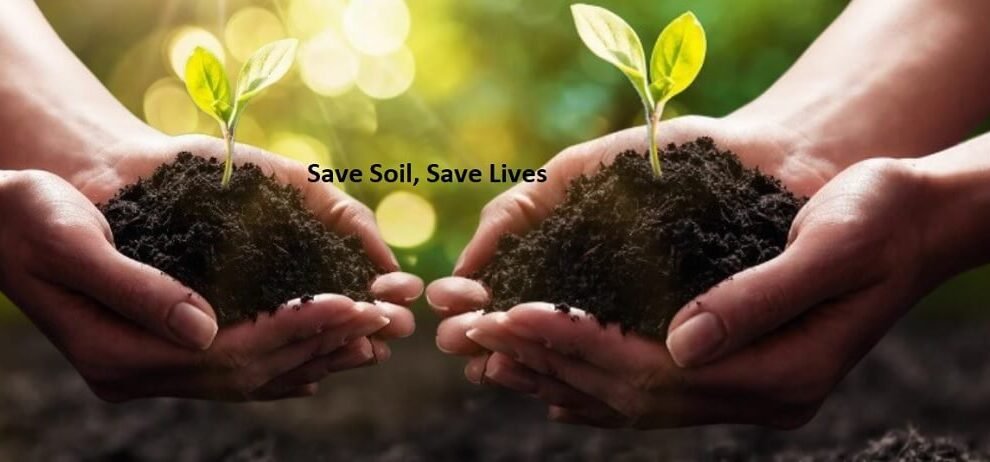On the occasion of Earth Day on April 22, 2025, one of the most pressing issues arises: How can we simultaneously address climate change and food security? The answer is not only in the plants we grow but also in the soil below. For decades, agriculture has been using chemical fertilisers, but there is a shift towards using organic methods to heal the topsoil—something the Indian Biogas Association feels can redefine the course of history.
The crop-yielding chemical fertilisers, as is known, have another side of undertone coming alongside rapid boosting of crop productivity since the mid-20th century. Globally, their use emits 2.6 gigatonnes of CO₂-equivalent annually—more than the aviation industry—due to energy-intensive production and nitrous oxide emissions. Their efficiency is also fleeting: 60-70 per cent of synthetic nitrogen applied to fields washes into waterways or evaporates, contaminating ecosystems. The result? Over 500 coastal dead zones worldwide, including a New Jersey-sized swath in the Gulf of Mexico, suffocating marine life.
Soil degradation is equally alarming. The UN estimates that 33 per cent of Earth’s soils are already degraded, with 24 billion tonnes of fertile soil lost yearly to erosion. In the US Corn Belt, relentless chemical use has stripped soils of 40-60 per cent of their original organic matter, leaving farms more vulnerable to droughts and floods. “We must understand the importance of the top layer of soil, which ensures that we live on this planet, but we need to let the soil live first otherwise the situation would be very gloomy,” warns Dr. A. R. Shukla, a former advisor of the Ministry of New and Renewable Energy and president of the Indian Biogas Association.
Disclaimer: The views and opinions expressed in this article are those of the author(s) and do not necessarily represent the views of Agrinews.in, its management, or its affiliates.
Climate solution
However, there is a climate solution beneath our feet. Switching to organic fertilisers—compost/Fermented Organic Manure—offers a path to repair this damage. Unlike chemical components, compost provides sustenance to soil microbes and earthworms, which help in the construction of the soil and the restoration of organic matter. The Rodale Institute has shown results from the 40-year Farming Systems Trial that show organic fields: 1. Can produce comparable yields to conventional farms following a minimum three-year transition. 2. 30 per cent higher yields during times of extreme weather. 3. Yield greater profits for farmers as a result of lower spending on inputs. Additionally, healthy soils retain moisture like sponges. An increase of 1 per cent in soil organic matter allows the land to retain an additional 75,000 litres of water per acre, which is a blessing as climate change intensifies dry spells. Many initiatives are trying to ensure that governments and farmers work together to ensure a healthier and sustainable Earth like: The European Union “Soil Deal for Europe” plans to shift 75 per cent of European-based soils to organic management by 2030 and farmers in Kenya are focusing on systems that turn crop residue into compost.Living ecosystem
In the US, the Healthy Soils Program has provided more than $200 million to farms who reduce the use of synthetic fertilisers just for putting cover crops and compost into their practices! Yet Earth Day reminds us that solutions exist. The Fermented Organic Manure coming from Biogas system could recycle 100 per cent of the world’s food waste back to mother Earth, while agroforestry—integrating trees with crops—boosts soil fertility naturally. “Soil isn’t just a resource—it’s a living ecosystem,” says Gaurav Kedia, Chairman, IBA. “When we handle it with love and support, we honor ancient wisdom and secure our collective future.” Indian Biogas Association is advocating for the fact that healing the planet begins with healing the soil. The choice isn’t between productivity and sustainability. By feeding the soil, we cultivate resilience—for our food systems, our climate and generations to come. The author is Chairman, Indian Biogas AssociationDisclaimer: The views and opinions expressed in this article are those of the author(s) and do not necessarily represent the views of Agrinews.in, its management, or its affiliates.
Published Source, on April 22, 2025


















Add Comment